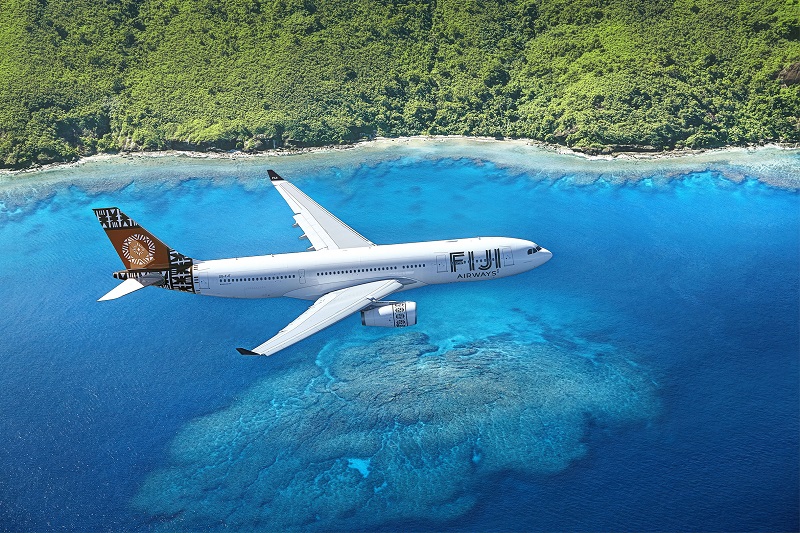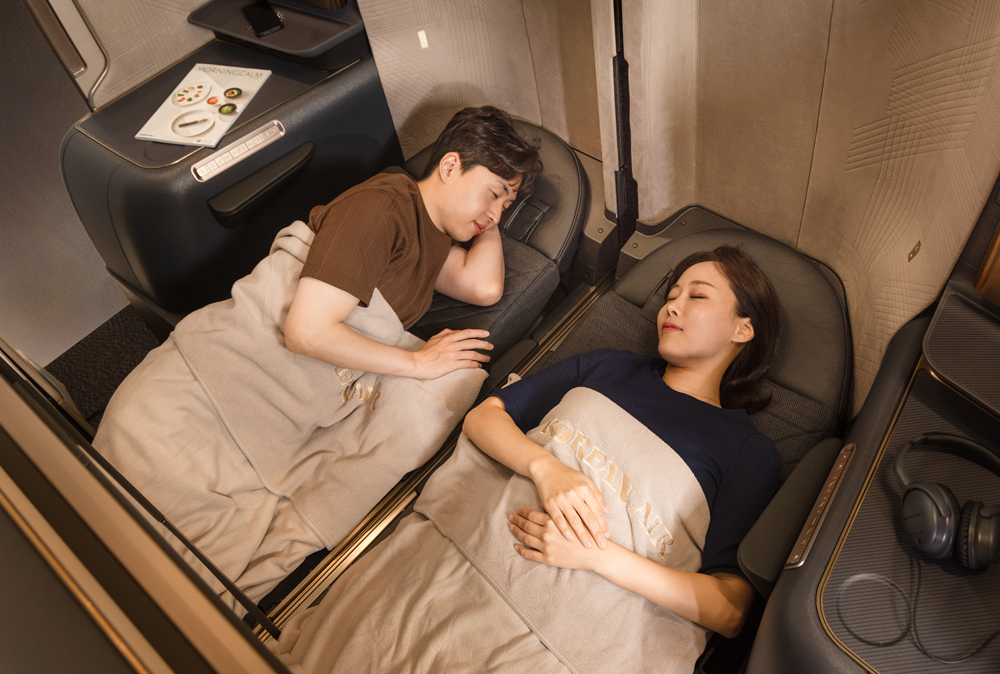Expanding Fiji Airways to add Airbus A350s
03 May, 2019
4 min read
By joining our newsletter, you agree to our Privacy Policy


Fiji Airways is to acquire two new Airbus A350 aircraft later this year as part of widebody aircraft expansion plans.
The new additions will be used primarily to service popular routes between Australia, Nadi and the US and are due to arrive in November and December.
The planes will be leased from Dubai Aerospace Enterprise and are currently being customized to the airline’s specifications and painted in its arresting livery.
They will complement its existing fleet of six Airbus A330s.
It will feature 33 B/E Aerospace Super Diamond fully lie-flat business seats offering direct aisle access and 301 Recaro CL3710 seats in economy.
READ our ratings for Fiji Airways.
Passengers will be able to access movies, TV and music on demand through the latest generation AVANT inflight entertainment system from Thales and the planes will have Wi-Fi connectivity.
The airline has also inked a deal with Rolls-Royce to provide its TotalCare package covering the maintenance of the Trent XWB engines powering the A350s.
Fiji Airways chief executive Andre Viljoen said the aircraft would give guests a world-class onboard experience supported by authentic Fijian hospitality.
He said the increased seat capacity would mean more visitors and ultimately benefit the Fijian economy.
“Ultimately, a luxury, world-class destination, like Fiji, deserves a luxury, world-class travel experience and that’s exactly what these aircraft will deliver,’’ he said.
“For our guests, the holiday starts the moment they board the aircraft.”
The announcement came as the airline revealed its full-year 2018 revenue had topped $F1 billion ($US470m) for the first time but its group pre-tax profit had fallen from $F95.8m in 2017 to $F55.3m.
The company attributed the fall to higher fuel prices and unfavorable foreign exchange movements.
Passengers numbers increased from 1.6 million in 2017 to 1.7 million in 2018.
Viljoen said 2018 was characterized “by significant highs and lows”.
“We grew revenue by 10 percent, crossing $F1 billion in total revenue and carried 7 percent more passengers, but this was offset by increased costs,’’ he said.
“Fuel price increases alone accounted for $F31.5 million being taken off our targeted bottom line, while unfavorable foreign exchange variations added another negative impact of $F8.2 million.
“Our network and fleet size grew, which means our manpower requirements grew as well, contributing to increased cost.
“Despite these and other industry-wide challenges, our team responded by diligently managing cost where possible and continuing with our infrastructure and fleet investment strategy.”
The carrier added three new Twin Otter aircraft to its fleet in 2017 and Boeing 737 MAX. It also started construction of the Fiji Airways Aviation Academy set to open later this year.
It also opened a new route to Narita, Tokyo, and joined the oneworld alliance as the first oneworld connect partner.
Viljoen described the outlook for 2019 as challenging but did not refer to the grounding of two MAX aircraft that have been caught up in Boeing’s global problems with the aircraft type.
“Fuel price is expected to negatively impact us in 2019 by F$40 million, hence the need to invest in modern, fuel-efficient aircraft that aligns with our commitment to providing a world-class travel experience,’’ he said.
“Our team stands ready to navigate these challenges, maintaining sound fiscal discipline and a relentless focus on customer experience. 2019 will also see the commencement of a number of sustainability initiatives, as we place strong emphasis on removing plastic and reducing waste where possible.
“ One of our upcoming initiatives will see us remove two tonnes of plastic from our aircraft a year, and save up to half a million litres of water annually.”
Next Article
2 min read
Qantas triples profit but misses mark

Get the latest news and updates straight to your inbox
No spam, no hassle, no fuss, just airline news direct to you.
By joining our newsletter, you agree to our Privacy Policy
Find us on social media
Comments
No comments yet, be the first to write one.
